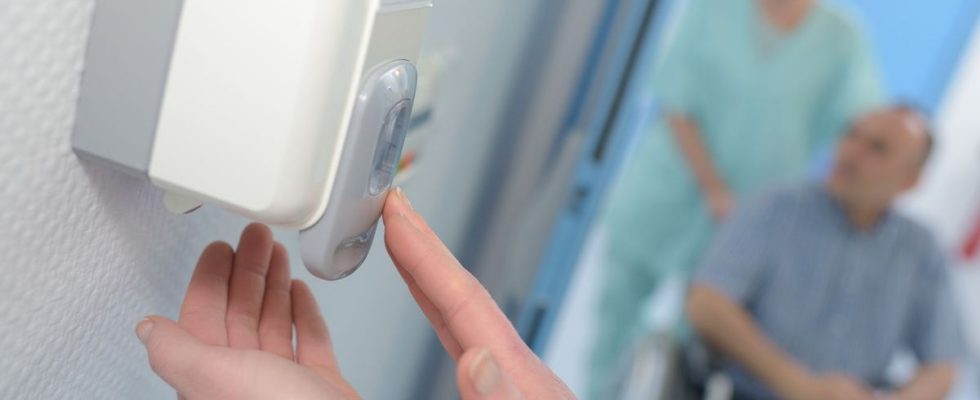Published on
Updated
Reading 2 mins.
in collaboration with
Dr Gérald Kierzek (Medical Director)
According to a Germitec/BVA study published on June 14, the risk of contracting an infection is the number one fear of French people who have to go through a healthcare establishment. Right or wrong ? We asked the question to Dr Gérald Kierzek, emergency doctor and medical director of Doctissimo.
Contracting a nosocomial disease is the main concern of French people who have to go to a care establishment, hospital or clinic, according to a new Germitec / BVA 2023 study published this Wednesday, June 14. An announcement that also highlights the lack of shared information on the subject.
A lack of knowledge of the principles of disinfection
If the fear is so palpable among the French, it is undoubtedly because it responds to facts. Thus, the study reveals that more than a quarter of French people are affected or know someone affected by nosocomial diseases, that is to say an infection contracted during a stay in a care establishment. Moreover, two out of three respondents believe that these diseases are common. However, the French are aware of the existence of nosocomial diseases, but half do not feel sufficiently informed on the subject and 64% are unable to name a single disinfection method. There remains a hazy veil over the threat. A public health problem that can damage the doctor/patient relationship for Vincent Gardés, General Manager of Germitec.
“An obvious thing appeared to us at the end of our experiences and professional exchanges: we had to understand even better the relationship between patients and healthcare professionals and the perception of infectious risks. It is a public health problem even more than we can imagine, this is what the results of this study have confirmed to us. It is necessary and urgent to awaken the responsibilities of each actor in this matter”.
What is a nosocomial infection?
According to the definition of the Ministry of Health and Prevention, nosocomial infection meets several criteria. “Nosocomial infections are infections that are acquired in a healthcare facility. An infection is considered as such when it was absent on admission. When the infectious state of the patient on admission is unknown, the infection is classically considered nosocomial if it appears after 48 hours of hospitalization. This deadline is however quite artificial and should not be applied without reflection.
A reasonable fear?
But then, is the fear of the French based on reality or is it fantasy? We asked the question to Dr Gérald Kierzek, emergency physician and medical director of Doctissimo, who confirms that zero risk does not exist.
“It’s our fear as doctors, in hospitals. Because these are not just complications related to surgical procedures as one might think. The risk of nosocomial illness can exist in harmless procedures, and moreover, the primary cause of nosocomial illness is the transmission of hand-borne disease.Any medical procedure may involve a risk, it is important to measure the benefit/risk and the need for each act, from the placement of an infusion (the amount of which must be reduced number), to that of a urinary catheter. Without forgetting the washing of hands which is essential’.
However, the doctor wants to be reassuring about the efforts made by the establishments:
“We can never totally eliminate the risk of disease, but there are a lot of efforts made to reduce the risks as much as possible, and a lot of prevention also so that the patients themselves respect the instructions, such as washing their hands or isolation when necessary. All of this helps to better protect you.”
